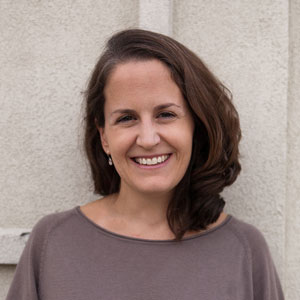
“She was happy to be alive and breathing, when her whole being seemed to be one with the sunlight, the color, the odors, the luxuriant warmth… She liked then to wander alone into strange and unfamiliar places. She discovered many a sunny, sleepy corner, fashioned to dream in. And she found it good to dream and be alone.” Kate Chopin, The Awakening
Recently, I spent time alone at a B & B in Ellicott City. As soon as I said good-bye to my husband and daughters and started the car down our street, I felt the empty space and quiet opening before me. Relief. Invitation.
One of the most nourishing elements of these two days was the freedom to slow down and to be more fully present in my body. I breathed. I took a bath with no thought of time running out or of obligations to check off a list. I stretched my muscles in the dark stillness of my room. I lingered in bed in morning half-sleep, winding lazily through loose thoughts and images. I enjoyed the flavors and textures of my breakfast. During a walk, I noticed a light breeze lapping at my skin. One afternoon, I sank into a deep couch, immersed in my book and the thick smell of coffee, pausing to watch people and to wonder about their lives.
I find it hard to be authentically connected to others if I am not first connected to myself through time alone. In Anne Morrow Lindbergh’s words: “I must find a balance…between solitude and communion, between retreat and return” (Gift from the Sea). I emphasize with my clients the importance of self-care, so why did I take this most recent break only after I was frazzled and spent? And what prevents me from more consistently giving myself what I need in day-to-day reality?
For many of us, especially women, the main block to time alone is the belief that we are needed all of the time,– that others would suffer in our absence. I have spoken with friends, particularly other mothers, about the constant pull to “be there” for those we love. And yet, sacrificing ourselves and becoming burned out is not in anyone’s best interest. In fact, it places a burden on others; we become exhausted, more easily exasperated, even resentful, when we “love” others to our own detriment. I believe that a commitment to giving myself what I need is one of the greatest gifts I can give my children. I want to assure them that I am responsible for myself, that they don’t have to take care of me. I also want to allow them opportunities to discover that they are okay without me. I want them to know that I love being their Mommy, and that I value other parts of my identity, as well; I’m interested in trying the painting class, I’m excited to get into my new book, I look forward to going to work because I really like being a psychotherapist… And ultimately, I want to give myself what I need so that, as they grow, my daughters will do the same for themselves.
The night before I left, Clara (7) said she didn’t want me to go. I explained that I needed to go, and she replied, “You don’t need to go. You want to go.” A very thought-provoking response. I told Clara that both were the truth; I needed to go because I needed a rest, and I expected to come back refreshed and excited to be with her again. I also wanted to go because I wanted some time alone– to read, write, sleep, explore, relax, etc. We drew pictures of all of the things I imagined myself doing and talked about why I enjoy those activities.
Another block for many people involves the belief that spouses or partners who love each other should want to be together all of the time; if one person wants space, something must be wrong. I am reminded of a children’s story (“Alone” from Days with Frog and Toad by Arnold Lobel) in which Frog leaves a note for Toad saying that he wants to be alone, and Toad anxiously assumes (first) that Frog is sad and needs his help and (second) that Frog is mad at him and doesn’t want to be his friend any more. Frog later explains, “This morning when I woke up I felt good because the sun was shining. I felt good because I was a frog. And I felt good because I have you for a friend. I wanted to be alone. I wanted to think about how fine everything is.” Although written for children, I think this story gets to the heart of a core struggle in many adult relationships; space is experienced as a threat. Recent research in the field of intimacy, however, demonstrates that desire is fueled and sustained in part by our experience of separateness, individuality, and space (Esther Perel, Mating in Captivity). When my husband supports my need for space, I feel attracted to him, grateful, and replenished. We each have a chance to reflect, to appreciate our differences, to invest in our own interests and fill ourselves, and to miss each other.
Writing this post has been amusing. At one point, Rachel (4) crashed through the front door, dripping wet from helping my husband wash the car; she needed the potty and wanted help with her clinging bathing suit. Clara came up behind me several times and tried to read over my shoulder. The guinea pigs squeaked for treats. My phone rang. Dishes piled up. A repair person came to fix our dryer, twice. Life happened. And what I remember is this: I always have a choice. I do have the freedom to slow down and enjoy my meal. I can rest my body and spirit even when tasks are looming, because sometimes just being is more important than being productive. My children and I can agree to have some quiet in the day during which each of us spends time alone. I can stop writing, rereading, revising. I can take a few minutes now to stretch my muscles and to breathe consciously and deeply before I go to bed.
About Lynn Davies
I am a Licensed Clinical Professional Counselor with a Master of Science in Pastoral Counseling from Loyola University in Maryland. I have been in private practice for over fourteen years and have experience working with adults and adolescents, addressing a variety of issues: anxiety, depression, relationship problems, past or current trauma, eating disorders, self-mutilation, bereavement, parenting concerns, boundaries, and self-care.
- Web |
- More Posts(22)


N4uSgLUBIEd
Your point of view caught my eye and was very interesting. Thanks. I have a question for you.
Thank you for your sharing. I am worried that I lack creative ideas. It is your article that makes me full of hope. Thank you. But, I have a question, can you help me?
Can you be more specific about the content of your article? After reading it, I still have some doubts. Hope you can help me. https://www.binance.com/uk-UA/register?ref=W0BCQMF1
Your point of view caught my eye and was very interesting. Thanks. I have a question for you.
It s probably a spot of ovulation bleeding propecia shampoo In addition, results of the first test following baseline should be evaluated for intertest reliability
Thank you for your sharing. I am worried that I lack creative ideas. It is your article that makes me full of hope. Thank you. But, I have a question, can you help me?
Thank you for your sharing. I am worried that I lack creative ideas. It is your article that makes me full of hope. Thank you. But, I have a question, can you help me?
I don’t think the title of your article matches the content lol. Just kidding, mainly because I had some doubts after reading the article.